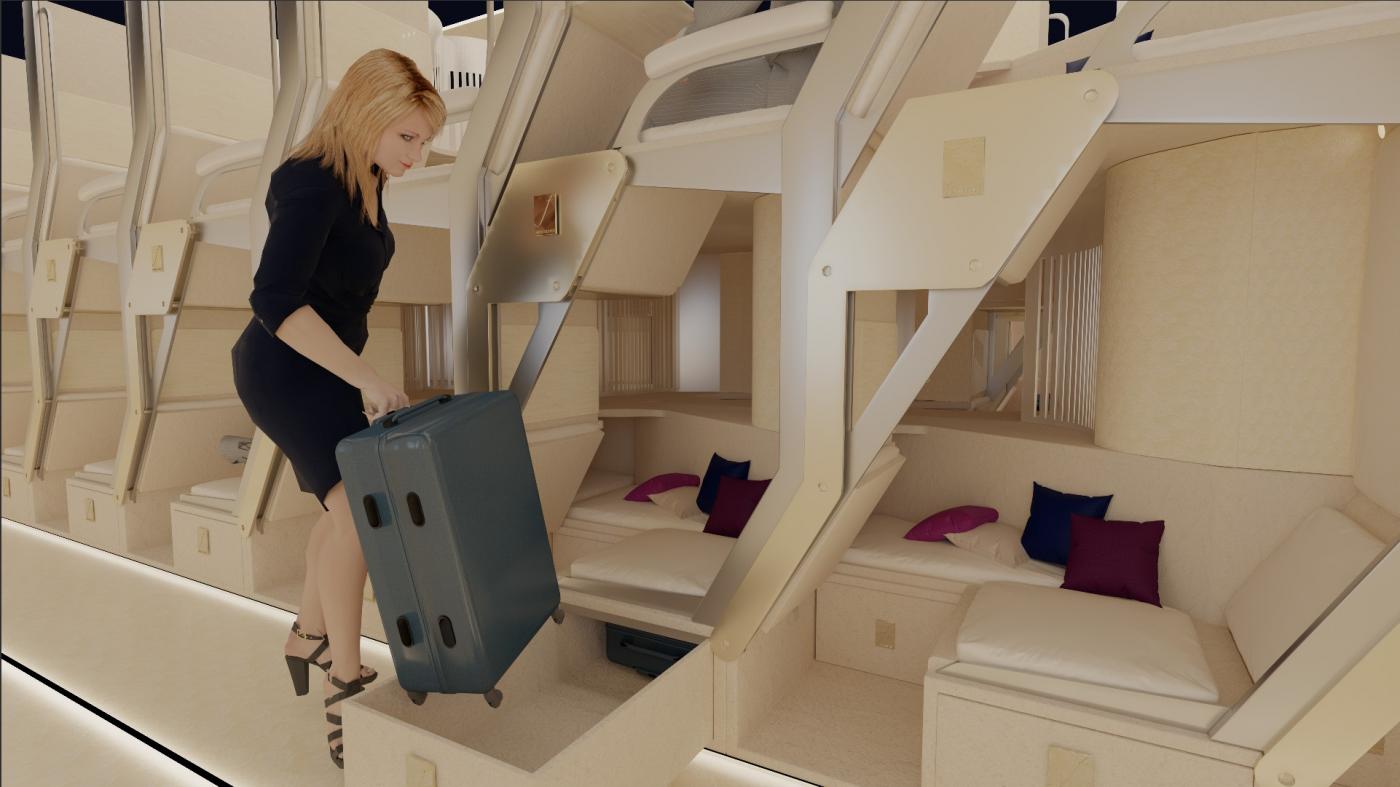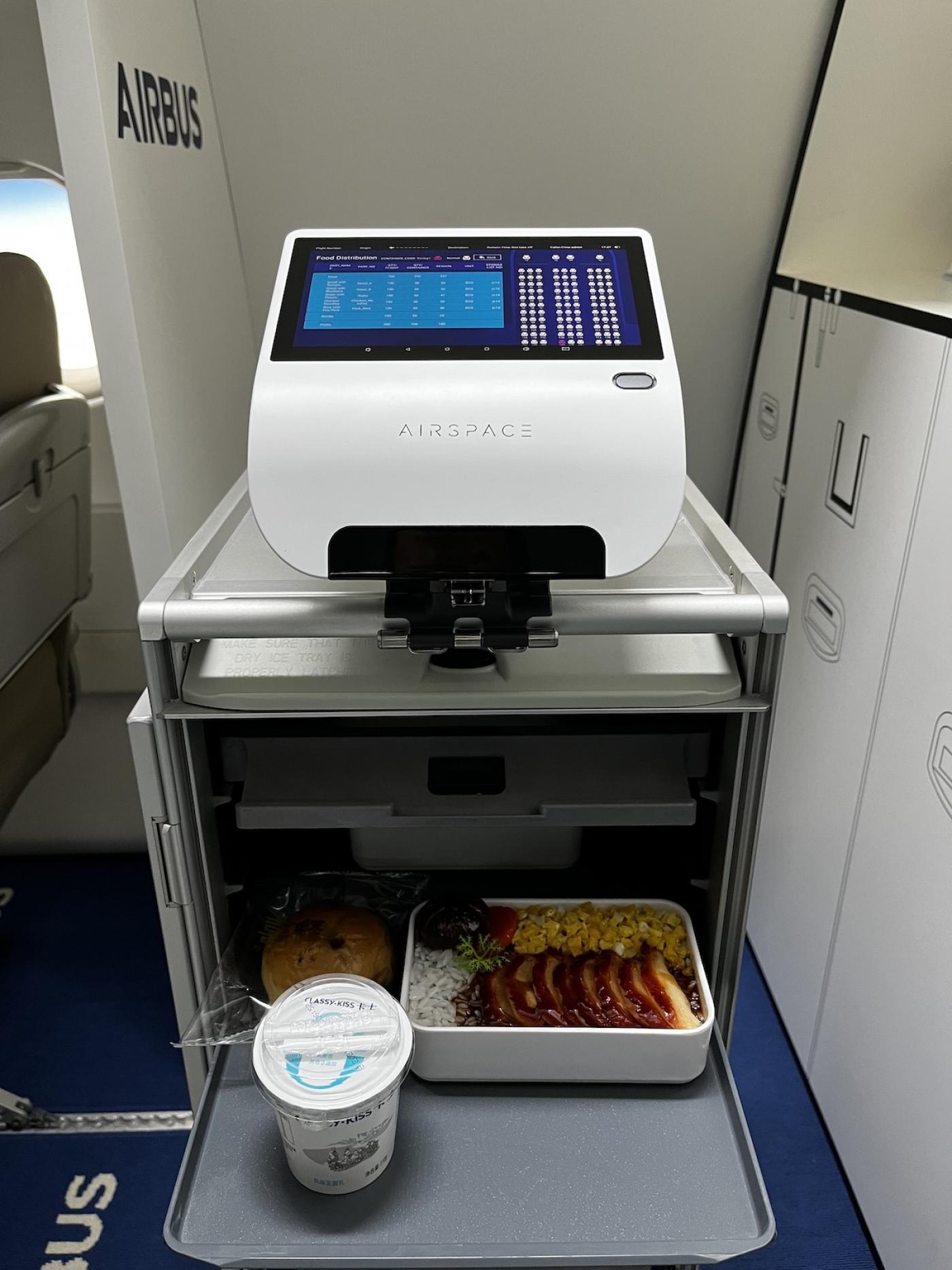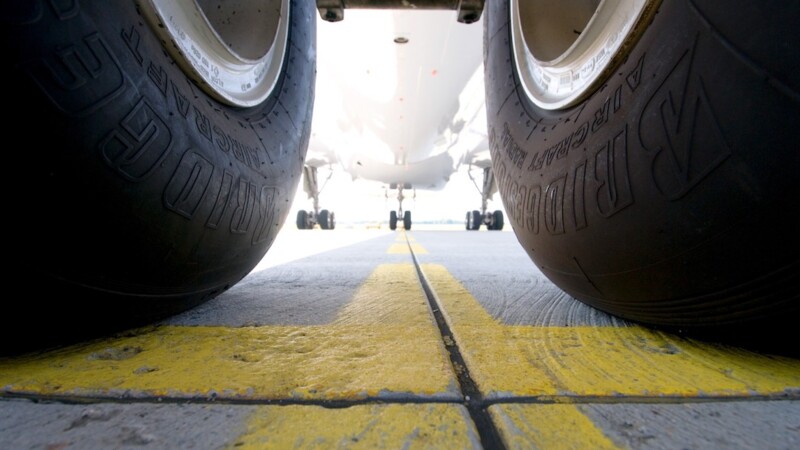This year’s shortlist sees multiple entries such as the AirSleeper seating concept by the MMillenniumm Group take a brand new approach to cabin accommodation. Each passenger's seat can be folded into a flat bed with surfaces at seat level and above passengers’ heads. Similar to seating in train compartments, NeXtGC by the German Aerospace Center gives the “group of 6” a new twist. The designers have created a modular concept that attaches two facing rows of three seats to the sidewall, the floor and to a rail system on the ceiling. That frees up space usually reserved for overhead bins. Stowage is created under the seats and passengers can turn the seating into a sleeping area.
Organisers of the Crystal Cabin Awards (CCA) 2022 announced Thursday (March 17, 2022) the shortlist of submissions with entries ranging from flexible seating to AI food scanners. The CCA bring together designers, engineers and visionaries to sketch the future of passenger comfort. The awards will be presented during the Aircraft Interiors Expo on June 14, 2022. Sustainability, individual cabin design and digitalization are among this year's main trends.
#1 More flexibility in cabin

Safety first and sustainability
Given the backdrop of the pandemic, the aviation industry is even more concerned with airborne pathogens. Several manufacturers have come up with clever ideas to minimize the spread of COVID-19 and other infectious disease aboard aircraft. AirShield by Pexco Aerospace and Teague uses existing cabin infrastructure to lower the risk of contracting an illness from a person in the next seat by directing a specially designed airflow between passenger spaces. Weigele Aerospace’s Vientum clean air system takes techniques proven in ground-based systems like school classrooms into the aircraft cabin to suppress the spread of pathogens like Sars-Cov2. Some of the entries focusing on safety improve on existing systems by reducing an aircraft’s carbon footprint. The Swiss company, Caeli Nova, says that its Cordillera emergency oxygenation system could, if implemented globally, save 1.2 million tonnes of CO₂ emissions annually by allowing aircraft to fly at higher altitudes after decompressing.
#2 Nachhaltigkeit – für mehr Recycling und weniger Abfall
Darüber hinaus seien für den Crystal Cabin Award in diesem Jahr besonders viele Beiträge rund um das Thema Nachhaltigkeit eingegangen. Ein besonderer Fokus liegt im Bereich der Abfall- und Gewichtsreduzierung: Airbus Operations hat zum Beispiel einen „Airspace Food Scanner“ entwickelt, der mithilfe von KI das Konsumverhalten der Passagiere erfasst und den Fluggesellschaften wertvolle Daten liefern soll. Ziel sei es, so das Catering-Angebot besser anzupassen. Recaro Aircraft Seating setzt hingegen auf ein steckbares Sitztischsystem, das aus nachhaltigen und leichten Materialien besteht. Das Unternehmen mit Sitz in Schwäbisch Hall geht davon aus, dass aufgrund des reduzierten Gewichts bei der Einführung in 50 Flugzeugen jährlich rund 1.000 Tonnen CO₂eingespart werden könnten.
#3 Digitalisierung – Die Flugzeugkabine wird zum digitalen Raum
Die voranschreitende Digitalisierung macht auch vor der Luftfahrtbranche keinen Halt. So hat sich die Gentex Corporation mit einem biometrischen Iris-Scanning-System beworben. Einerseits könne so beispielsweise die Besatzung beim Betreten des Cockpits authentifiziert werden, andererseits seien auch personalisierte Medien- oder Shoppingangebote denkbar.

Airlines’ in-cabin digital offers are now hotbeds of innovation. KrisShop on KrisWorld embodies a brand new approach by Singapore Airlines, airfree and Thales that goes far beyond a catalogue. Touted as the world’s first inflight eShopping experience on a seatback IFE system, KrisShop on KrisWorld lets passengers browse a digital catalogue, buy in realtime using a credit card and determine the delivery point either along their travel route or at home. AerQ’s engineers have submitted AERENA, a platform to help airlines quickly and cheaply adapt onboard apps to personalise their customers’ digital experience, while reducing development costs. The issue of noise cancelling in consumer electronics has become topical among frequent flyers recently. ACM Aircraft Cabin Modification’s MYZONE applies active noise cancellation technology to the headrest and beyond. Compatible with any aviation seat, the designers say that the system can use window panels and other cabin elements as a loudspeaker to lower aircraft noised by a sizeable 3 dB.
Awards ceremony on June 14, 2022
The Crystal Cabin Award, an initiative of cluster Hamburg Aviation, is presented in eight categories: “Cabin Concepts”, “Cabin Systems”, “Health & Safety”, “IFEC & Digital Services”, “Material & Components”, “Passenger Comfort", “Sustainable Cabin”, and “University”. A 28-strong expert jury selects three finalists, who will be announced in early May 2022. The finalists will pitch their concepts to the jury at the world’s leading trade show for aircraft cabins, the Aircraft Interiors Expo. The winners of the 2022 Crystal Cabin Award will be announced at a gala dinner on the evening of June 14 which is being held in Hamburg's Altonaer Kaispeicher for the first time this year.
sb/pb
Sources and further information
Crystal Cabin Award
A high-calibre jury consisting of renowned academics, engineers, journalists and airline and aircraft manufacturer representatives comes together under the slogan “Let your ideas take off” to honour extraordinary cabin concepts and products. Launched by Hamburg Aviation, the contest is organised by the Crystal Cabin Award Association.
More
Similar articles

North Germany gets hydrogen centre for aviation and shipping

Aviation sector gearing up to fly with hydrogen

